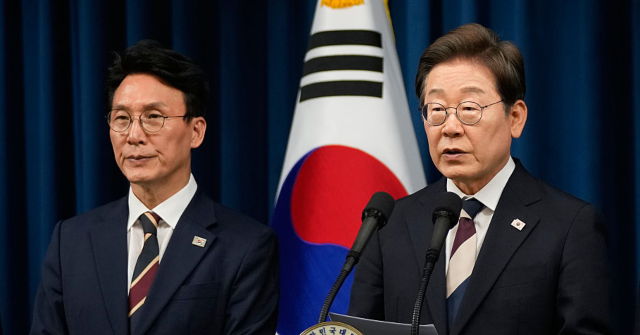South Korean Acting Finance Minister Lee Hyoung-il said on Sunday that his government will “swiftly take any necessary measures” to cope with economic fallout from the conflict with Iran.
“Each institution needs to closely coordinate with extreme caution in responding to the Middle East situation that has entered a new phase and swiftly take necessary measures if an unusual event occurs,” Lee said at an emergency meeting in Seoul held in response to U.S. airstrikes on Iran’s nuclear program.
The meeting included officials from South Korea’s trade and foreign ministries, plus the central bank and the country’s top financial commissions.
Lee said uncertainty was “very high” in the aftermath of the airstrikes, so his department would carefully monitor further developments in the Middle East and how global markets react to them. He said there was no immediate disruption to South Korea’s supply chains or energy reserves, but the government was ready to take “immediate and bold” action if any such disruptions were observed.
South Korea is the fourth-largest importer of crude oil in the world and it gets about 70 percent of that oil from the Middle East, especially Saudi Arabia. If Iran carries out its threat to block oil shipments through the Strait of Hormuz, South Korea would be among the countries most severely affected, behind only China and India.
China ships far more oil and gas through the Strait of Hormuz, but it is highly unlikely that Iran would attempt to cut off China’s shipments. India gets slightly more oil through the strait than South Korea does, but India would be better positioned to make up for a shortfall by purchasing more oil from its other top supplier, Russia.
Even before the airstrikes on Iran, South Korea was nervous about relying so heavily on energy products from the volatile Middle East. The South Korean trade ministry held a meeting last week to discuss the possibility of importing more oil and gas from the U.S., Mexico, and Brazil, which currently supply about 27 percent of South Korea’s imports.
South Korea’s economy is also heavily dependent upon shipping exported goods around the world, which means fluctuations in shipping costs are keenly felt. The Korea Times on Monday quoted industry analysts who said the shipping disruptions caused by the Iran-backed Houthi terrorists of Yemen, who have been attacking civilian vessels in the Red Sea with missiles and drones since early in the Gaza war, have already imposed painful costs on South Korean exporters.
“All we can say is that we are now closely monitoring the situation to contain supply chain uncertainties,” an official from a South Korean petrochemical company said.
The Korea Trade-Investment Promotion Agency issued a report last Thursday that said export growth to customers in the Middle East, including Syria, Jordan, Lebanon, Israel, and Iran, could be reversed in the latter half of 2025 if the security situation remains volatile.
Read the full article here
